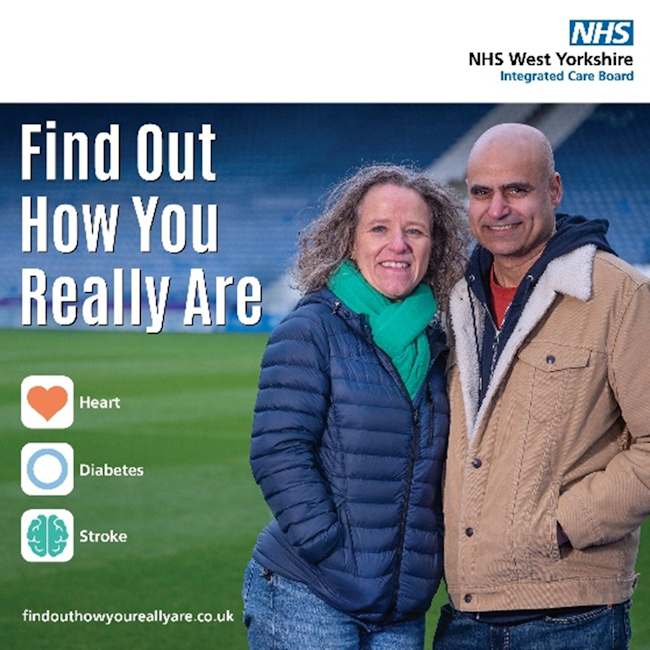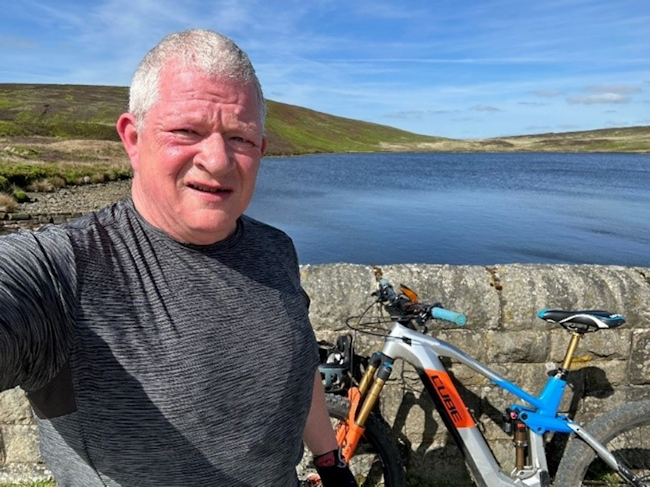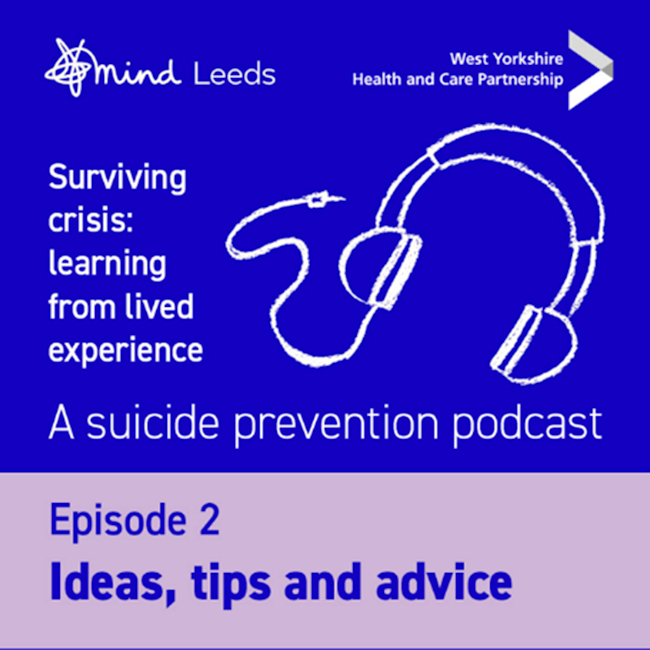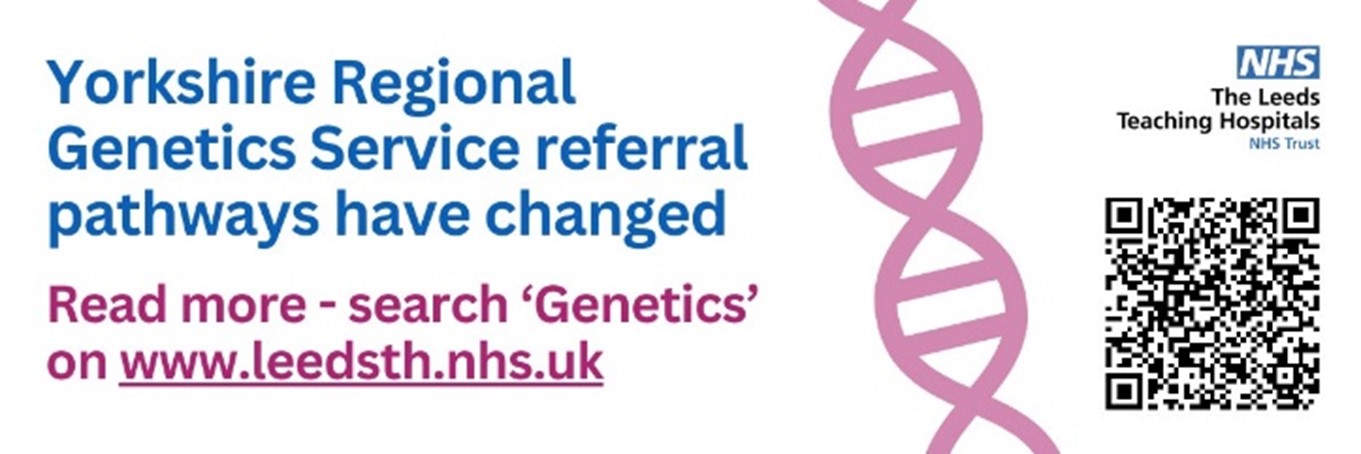Posted on: 8 February 2024
Hello my name is Rob.
Hopeful things
 Throughout my working life, I have been struck by those who are able to reflect on humanity, see the humour in things, and crucially help keep the hope alive. Those who inspire, burn bright, provide the spark and consequentially provide the hope are, for me, our most authentic leaders. Often unassuming, unaware of the power of their words or their influence, their integrity resonates. At this time of year, as our integrated systems grind their way through post-Christmas winter blues, in the cold and dark, betwixt the deepest of frosts and the stormiest storms, I find I need this inspiration and this positivity more than ever. Hope is an eternal search.
Throughout my working life, I have been struck by those who are able to reflect on humanity, see the humour in things, and crucially help keep the hope alive. Those who inspire, burn bright, provide the spark and consequentially provide the hope are, for me, our most authentic leaders. Often unassuming, unaware of the power of their words or their influence, their integrity resonates. At this time of year, as our integrated systems grind their way through post-Christmas winter blues, in the cold and dark, betwixt the deepest of frosts and the stormiest storms, I find I need this inspiration and this positivity more than ever. Hope is an eternal search.
During this time, what gets me through as an avid reader, are my books. They bring stories and light back into dark nights. Below is a small taster sample of some books that have positively impacted on my professional thinking as a social worker.
Get Steven Home by Mark Neary
Mark Neary is the father of Steven Neary and wrote the book Get Steven Home in 2011. Steven, a young man with autism, was placed in a care home for three days respite in 2010 to help give Mark a break from caring for Steven because Mark was suffering from flu. However, to Mark’s surprise and Steven’s anguish, nearly a year later Steven was not returned home to his dad. Mark’s story is that of a dad who lost his son. A very personal and at times raw account, exceptional in its authenticity, it takes the reader on a journey through the Deprivation of Liberty Safeguards, campaigning, the amplification power of social media and finally the High Court, as he tirelessly worked to get Steven home, driven by his love and with guile. It is beautiful and a must read for every social worker. I often reach for this book because as a social worker I understand the subject detail well. It’s easy for me to read. But moreover, I read it because of Mark. Despite battling with the authorities, who as the book illustrates, can be seen as faceless, illogical, and downright unfair, he is able to get Steven home due to his own honesty, humour, connection and his absolute love for Steven. The book is everything that is hopeful about families.
Love, Learning Disabilities and Pockets of Brilliance: How Practitioners Can Make a Difference to the Lives of Children, Families and Adults by Sara Ryan
Sara Ryan has written a book of brilliance, filled with humanity. I find this book an extraordinary gift to my profession, especially given that Professor Ryan’s own son, Connor Sparrowhawk, died whilst in the care of the NHS. From the perspective of families she has spoken to, she has poured her love for Connor into brilliant descriptions of where practice shines brightly in the minds of those it was designed to support. Sara, with every reason in the world to distrust and critique our systems, chooses practically on every page to channel that into a stream of reminders of just how we can all be brilliant, loving, human and helpful. The cover alone is a joyous addition to my bookshelf. A book that everyone who is supporting learning disabled or neurotypical children, young people and adults should read.
Untold Stories by Alan Bennett
Following a lecture I delivered some years ago, I was asked by a social work student which author I recommended in terms of the student wanting to work with older people. I surprised myself with my answer, but then I feel like I have always known Alan Bennett. From his series of Talking Heads to his plays and autobiographical work and diaries, he is, for me, exceptionally funny, at times provocative and passionately honest. As a proud social worker, I have always enjoyed Alan Bennett’s snippets about our profession, and he features social workers on a regular basis. In the play Say Something Happened, the moment the social worker leaves the house of the older couple she has been visiting, the woman turns to her husband and says “Social work? It’s just chiming in”. A fantastic line that will never fail to make me smile!
In Untold Stories, Alan Bennett reflects on his parents, and in particular his mother’s mental ill health in adulthood and her dementia prior to her death. His searingly insightful comments about the care staff in the nursing home, where his mother spent her last few years, remind me of my first job as a care assistant all those years ago. He recounts holding his mother’s hand one afternoon, desperately seeking eye contact with her in an effort to elicit some sort of communication and recognition long gone. He looks around at the comings and goings of the carers, bright and bubbly, flirtatious even, smiling and laughing between themselves, and comments that they are playing their parts as if they are in a ‘Carry On’, whereas he is sat there playing it like it’s Brief Encounter. The pathos, often seen across health and social care settings, there in a sentence. The book, and probably moreover the author, are a treasure to me and a national treasure for the country, I hope.
All these three books are a challenge to my profession. They do not spare us where we get health and social care wrong. But crucially, despite our collective failings, all three books choose instead to focus on the answer, and this is hope, people making a difference, things getting better and the richness of humanity. A reminder that even in the darkest of places, brighter days are coming, and they are always worth hoping for.
Thank you for reading and have a good weekend,
Rob
What else has been happening this week?
Winter 2023/2024 – Thank you
At the January meeting of NHS West Yorkshire Integrated Care Board (ICB), members of the Board discussed how partners across our Partnership have been coping with the seasonal increases in need for services and how colleagues have been working exceptionally hard. You can watch the web stream of the meeting held in public and read the winter planning report on our website. Cathy Elliott, Chair of the ICB, Cllr Tim Swift, Chair of the Partnership Board and Rob Webster, CEO for the ICB and our Partnership Lead have written a letter to all staff thanking them for all their planning, hard work, care, and commitment so far this winter.
World Cancer Day 2024
 To mark World Cancer Day on 4 February, the West Yorkshire and Harrogate Cancer Alliance commissioned a film to highlight the part it plays in helping to reduce the global impact of cancer – making access to life-saving cancer treatment and care equitable for all.
To mark World Cancer Day on 4 February, the West Yorkshire and Harrogate Cancer Alliance commissioned a film to highlight the part it plays in helping to reduce the global impact of cancer – making access to life-saving cancer treatment and care equitable for all.
The short film focuses on how each team in the Cancer Alliance works together as part of the Integrated Care Board, the wider West Yorkshire Health and Care Partnership and our collaborative endeavours to deliver the strategic early diagnosis and survival goals set out in the national cancer strategy.
To watch the film, please visit the Cancer Alliance website.
LGBT+ History Month
February is LGBT+ History Month, and this year’s theme is ‘medicine under the scope:’
- Almost one in four LGBT people (23%) have witnessed discriminatory or negative remarks against LGBT people by healthcare staff.
- One in seven LGBT people (14%) have avoided treatment for fear of discrimination because they’re LGBT.
- Nearly half of trans people (45%) said that their GP did not have a good understanding of their needs as a trans person, rising to over half of non-binary people (55%).
- More than a third of LGBT staff (35%) have hidden that they are LGBT at work for fear of discrimination.
- One in four trans people (26%) aren’t open with anyone at work about being trans. This number increases to about two in five non-binary people (37%) who aren’t out at work.
- Almost one in five LGBT people (18%) who were looking for work said they were discriminated against because of their identity while trying to get a job.
That's why this #LGBTHistoryMonth, we're encouraging people to better understand the challenges faced by our LGBT+ communities and colleagues. For more information and links to resources, please visit our website.
Find Out How You Really Are’ launched
 The Partnership is working with cricket and rugby clubs to encourage supporters to ‘Find Out How You Really Are.’
The Partnership is working with cricket and rugby clubs to encourage supporters to ‘Find Out How You Really Are.’
The new initiative encourages people to take steps to understand and reduce their risk of developing diabetes or experiencing a heart attack or stroke.
It’s estimated that approximately 300,000 people across the region are unaware that they have high blood pressure. Persistent high blood pressure can increase the risk of several serious and potentially life-threatening health conditions, including stroke.
As part of the campaign, fans will be offered health screens, including blood pressure and pulse checks, at several fixtures over the coming season. People can find out more and assess their risk on the campaign website: www.findouthowyoureallyare.co.uk.
Two sports fans, Sophie and Harjit from Huddersfield, feature in publicity for the campaign. Just four years ago, Harjit 54, who has type 2 diabetes, suffered a sudden heart attack and is keen to help raise awareness and promote common risk factors that could help others to avoid a similar experience. Read more on the West Yorkshire Health and Care Partnership website.
NHS enhances access to care and information for younger people with type 2 diabetes in West Yorkshire
 T2DAY: Type 2 Diabetes in the Young provides specialised care for people aged 18 to 39 with early onset type 2 diabetes. It offers extra one-to-one reviews alongside annual diabetic check-ups, offering new medicines and treatments to better manage diabetes.
T2DAY: Type 2 Diabetes in the Young provides specialised care for people aged 18 to 39 with early onset type 2 diabetes. It offers extra one-to-one reviews alongside annual diabetic check-ups, offering new medicines and treatments to better manage diabetes.
The ICB’s T2DAY Programme offers support for blood sugar control, weight management, and guidance on reducing blood pressure and cholesterol levels. Working across West Yorkshire, the programme provides person-centred care, including mental health support, peer support and physical activity.
Simon Bull from Calderdale completed the T2DR programme and continues to maintain his weight loss, through healthier lifestyle choices with long-term benefits. He said “I weighed 19 stone when I started the total diet replacement programme. In the first 12 weeks, I lost almost 4 stone and kept that weight off for the remaining nine months of the programme. It was not the easiest thing in the world…but I did it. I feel a lot better in myself.”
Measles and MMR vaccinations
 The recent rise in measles cases, particularly in London and the West Midlands, has led UKHSA to declare a national incident. The agency is warning that further outbreaks of measles will spread to other areas unless urgent action is taken to increase measles, mumps and rubella (MMR) vaccination uptake in areas at greatest risk.
The recent rise in measles cases, particularly in London and the West Midlands, has led UKHSA to declare a national incident. The agency is warning that further outbreaks of measles will spread to other areas unless urgent action is taken to increase measles, mumps and rubella (MMR) vaccination uptake in areas at greatest risk.
The following may be useful to stakeholders looking to help raise awareness of measles and the MMR vaccine:
- UKHSA has a measles communications toolkit. This includes social media materials to raise awareness amongst the public, alongside resources for health professionals
- A video of Consultant Epidemiologist at UKHSA, Dr Colin Campbell, explains who can have the MMR vaccine and why the World Health Organization (WHO) has set an MMR vaccination target of 95% of the population.
- The Department for Education has published a blog aimed at parents and carers: ‘What to do if you think your child has measles and when to keep them off school’
The Local Government Association (LGA) will be hosting a free Zoom webinar titled 'Measles cases on the rise: information for officers and local councillors' on Tuesday 13 February 2024, 3:00 – 4:00pm. Public health leaders will be speaking about the current measles situation, dispelling myths, and advocating for a whole systems approach to manage community cases and clusters, raise community awareness and promote MMR uptake.
Yorkshire Regional Genetics Service referral pathways have changed
Yorkshire Regional Genetics Service (YRGS) is an integrated clinical and laboratory service for people affected with, or at risk of, a genetic condition. Hosted by Leeds Teaching Hospitals, the service supports the population of Yorkshire and Humber, accepting laboratory samples from local, national and international sources.
Referral pathways for the service have changed from Monday 5 February 2024, with routine referrals received through the national e-referral system from this date. This will support faster access to care for patients and reduce the risk of lost referrals. Read more on the Leeds Teaching Hospitals website.
West Yorkshire highlighted in new government report
Our West Yorkshire Adversity, Trauma and Resilience (ATR) Programme has been recognised in a new Home Office publication which aims to share practice among violence reduction units and partners to develop and embed trauma-informed practice.
'Can You See Me?' podcast - new episode out now
In the latest episode of the 'Can You See Me?' podcast, Fatima Khan-Shah, West Yorkshire Inclusivity Champion, is joined by West Yorkshire Health and Care Partnership colleagues Karen Coleman, Associate Director of Communication and Involvement at NHS West Yorkshire Integrated Care Board and Shak Rafiq, Associate Director Communications and Involvement for Act As One, Bradford District and Craven Health and Care Partnership to discuss 'the power of language: is the term “BAME” hurting ethnic minorities?'
The 'Can You Hear Me?' (now 'Can You See Me?') podcast series was created to give voice to the diverse talent working to improve health and care for people in West Yorkshire, and is produced and presented by members of the West Yorkshire Health and Care Partnership's Strategic Race Equality Network and colleagues from the West Yorkshire Health and Care Partnership.
Suicide prevention – episode 2 of new podcast series
 The second episode of a new podcast series aimed at supporting health and care staff who work with people in suicidal crisis hears those with experience share their thoughts on tips and advice regularly given for managing mental health crisis.
The second episode of a new podcast series aimed at supporting health and care staff who work with people in suicidal crisis hears those with experience share their thoughts on tips and advice regularly given for managing mental health crisis.
The series, called ‘Surviving Crisis: Learning from Lived Experience’ uses insights from frontline health and care staff who were asked in advance what they would like discussed.
Listen to this episode and more online on the suicide prevention website.
Reflections of maternity support worker celebration day
 Maternity support workers (MSWs) are an integral part of the maternity workforce and play a very important role in maternity care and supporting the multi-disciplinary team and the families that we serve.
Maternity support workers (MSWs) are an integral part of the maternity workforce and play a very important role in maternity care and supporting the multi-disciplinary team and the families that we serve.
Trusts across the West Yorkshire and Harrogate Local Maternity and Neonatal System (WY&H LMNS) recognised MSWs as part of the Royal College of Midwives MSW celebration day in November and the LMNS recently brought some of these moments together.
Inequalities action: George’s story
Our workforce stories highlight the people working in Bradford District and Craven to reduce inequalities. This is George’s story, a young persons’ mental health coordinator who works in local schools to promote emotional well-being and build resilience among the children, through nurture environments. Learn more here: George's story - nurture environments - YouTube.
These stories are an example of best practice and a reminder that everyone can play a role in reducing inequalities. Learn more about what we’re doing to reducing inequalities on the Bradford District and Craven Health and Care Partnership website.


